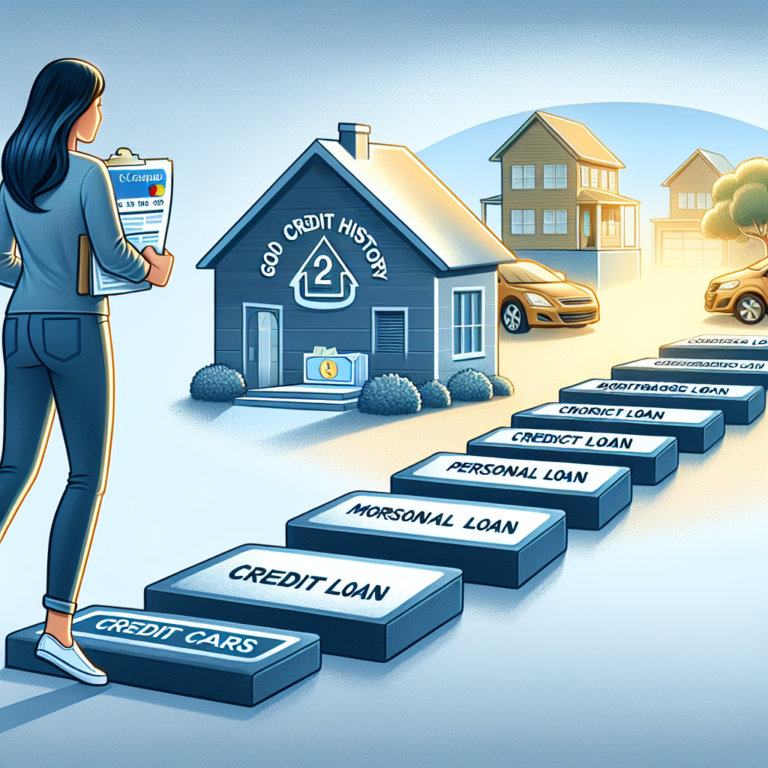Building credit for the first time can seem like a daunting task, but it’s a crucial financial step that opens doors to numerous opportunities, from securing a loan for your dream home to getting approved for a car lease or even landing a job. Good credit is a cornerstone of financial freedom; it reflects your reliability as a borrower and can influence many areas of your life. If you’re new to the world of credit, this guide will walk you through the essential steps to establish a solid credit foundation.
1. Understand What Credit Is
Before diving into the mechanics of building credit, it’s essential to understand what credit actually is. Credit is essentially a measure of your ability to borrow money and repay it responsibly. It is quantified by a credit score, which is influenced by various factors including your payment history, the amounts owed, the length of your credit history, types of credit used, and new credit inquiries. The higher your credit score, the more favorable your borrowing conditions will be.
2. Check Your Credit Report
If you’re starting with no credit history, your first step should be checking your credit report to ensure that no unauthorized accounts are already listed under your name. You can get a free copy of your credit report annually from each of the three major credit bureaus: Equifax, Experian, and TransUnion. Even if you don’t have a credit history yet, knowing how to access and read your credit report is part of building good financial habits.
3. Open a Bank Account
While having a bank account doesn’t directly impact your credit score, maintaining a healthy checking and savings account can be beneficial for building financial discipline. It’s a practical way to manage your money and can serve as proof of financial stability when applying for your first credit accounts.
4. Start with a Secured Credit Card
A secured credit card is one of the most accessible ways for first-time borrowers to build credit. Unlike a traditional credit card, a secured credit card requires a cash deposit, which serves as your credit limit. For example, if you deposit $500, your credit limit is $500. Use the card responsibly by making small purchases and paying off the balance in full each month. This activity will be reported to the credit bureaus, helping you build a positive credit history.
5. Consider a Co-Signer or Authorized User
If obtaining a secured credit card isn’t an option, consider asking a family member or trusted friend with good credit to co-sign a loan or add you as an authorized user on one of their credit cards. As an authorized user, the primary account holder’s credit history on that card will be linked to your credit report. However, this method also comes with risks, as negative activity on the account will also reflect on your credit history.
6. Apply for a Credit Builder Loan
Credit builder loans are specifically designed to help individuals build their credit. Here’s how it usually works: the loan amount is held in a bank account while you make monthly payments. Once you’ve repaid the loan, you receive the funds. This process establishes a record of payment history and accounts for amounts owed, both of which are crucial components of your credit score.
7. Make Payments On Time
One of the most critical aspects of building good credit is making timely payments. Your payment history accounts for 35% of your credit score, making it the most significant factor. Set up automatic payments or reminders to ensure that you never miss a due date. Consistently paying your bills on time will build a solid foundation for your credit profile.
8. Keep Credit Card Balances Low
The amount of debt you owe in relation to your credit limit is known as your credit utilization ratio, and it accounts for 30% of your credit score. Aim to keep your credit card balances below 30% of your credit limit. For example, if you have a credit limit of $1,000, try to keep your balance below $300. This ratio shows lenders that you manage your credit responsibly and do not overextend yourself financially.
9. Diversify Your Credit Types
Your credit mix, or the variety of credit accounts you have, makes up 10% of your credit score. While you don’t need to have every type of credit available, having a mix of installment loans (like auto loans or student loans) and revolving credit (like credit cards) can positively impact your score. However, don’t open new accounts just for the sake of diversifying; only take on credit you need and can handle comfortably.
10. Monitor Your Credit Regularly
Building credit is an ongoing process. Regularly monitor your credit score and report to track your progress and ensure that all information is accurate. There are various free services and apps available that allow you to check your credit score and receive alerts for any changes. If you notice any errors or suspicious activity, report it to the credit bureaus immediately to have it corrected.
11. Be Patient and Persistent
Building a good credit history takes time. Understand that it may take several months to see significant improvements in your credit score. Continue to practice good credit habits and avoid pitfalls like applying for too many credit accounts in a short period, as too many inquiries can negatively impact your score. Stay patient and persistent, and your efforts will pay off in the long run.
12. Educate Yourself on Credit Management
The world of credit can be complex and ever-changing. Take the time to educate yourself through books, articles, and financial courses. Understanding the finer details of how credit works will empower you to make informed decisions and avoid common mistakes. The more knowledgeable you are, the better equipped you’ll be to manage your credit effectively.
In conclusion, building credit for the first time is a significant milestone in your financial journey. By following these steps and maintaining disciplined financial habits, you’ll establish a robust credit history that will serve you well throughout your life. Remember, good credit opens doors to opportunities and financial flexibility, so start today and take control of your financial future.





